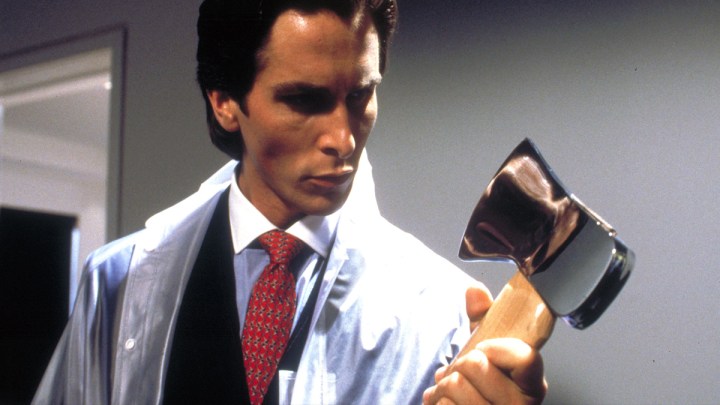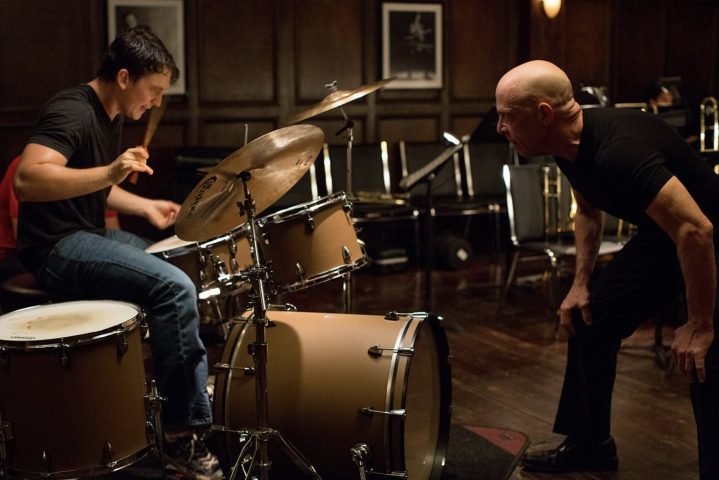Cinema is full of characters who become consumed by their desires, with numerous films depicting the unraveling of their lives as they toe the thin line between ambition and obsession. Movies about obsession explore these extreme passions and fixations, using well-written narratives to show how fascinating such relentless pursuits can be.
From the haunting descent portrayed in Taxi Driver to the frenetic intensity captured in Whiplash, some movies depict all-consuming obsessions in captivating ways. Often serving as deep dives into the minds of troubled characters and their desires, these stories will have viewers transfixed, yet unsettled, with most serving as a glaring warning of the dangers of wanting something too much.
7. Nightcrawler (2014)

Lou Bloom (Presumed Innocent‘s Jake Gyllenhaal) is a down-on-his-luck petty thief in Los Angeles who soon discovers the exciting and much more lucrative world of freelance photojournalism. Nightcrawler sees Lou fully embrace the job, becoming a stringer himself and recording increasingly violent incidents to sell to local news stations. The more sensational the footage, the higher the payout, so Lou becomes obsessed with capturing the perfect shot, even if it means manipulating crime scenes and crossing other ethical boundaries.
Directed by Dan Gilroy, the neo-noir thriller soars thanks to Gyllenhaal’s mesmerizing performance as the sociopathic Lou, whose unsettling apathy makes him perfect for the job. The disturbing protagonist is both a reflection and critique of the relationship between unethical journalism and the consumer demand that feeds it. One of the best crime movies of the 2010s, Nightcrawler takes some truly dark turns after a nightmarish buildup that makes it feel like a slow-burn horror flick.
6. The Prestige (2006)

How much would you give up to outdo a rival? This is the question director Christopher Nolan explores in The Prestige, with the answer being a spine-chilling and unforgettable twist. Set in the late 19th century, the 2006 film follows two magicians, Robert Angier (Hugh Jackman) and Alfred Borden (Christian Bale), whose intense competition to outshine each other consumes their lives. The duo becomes determined to uncover each other’s secrets, with Angier becoming particularly fixated on Borden’s ultimate trick, “The Transported Man.”
The Prestige premiered to critical acclaim, with fans and critics praising its unique story that takes unexpected paths and introduces surprising characters like David Bowie’s Nikola Tesla. Jackman and Bale’s dynamic is at the heart of the film, with the pair’s unhealthy competition costing each much more than they initially thought. The relatively underrated entry in Nolan’s extensive filmography is a must-see for the director’s fans, who will likely recognize his familiar trademarks, from the non-linear narrative to the use of symbolism throughout.
5. Eyes Wide Shut (1999)

Dr. Bill Harford (Tom Cruise) seems to lead a stable life with his wife, Alice (Nicole Kidman) in New York City, at least until a heated argument where she reveals her sexual fantasies about another man. Disturbed and driven by jealousy, Harford begins a night-long sexual journey that leads him to a secretive masked ball. There, he meets interesting individuals and has a series of sexual encounters that become increasingly surreal and unsettling as his obsession leads him deeper into this world of forbidden desires.
Eyes Wide Shut is director Stanley Kubrick’s final masterpiece, as the renowned filmmaker died of a heart attack shortly after presenting the 1999 film’s final cut. Much like several of the director’s works, the erotic drama is filled with symbolism and layered meanings, ultimately focusing on the central arc of Harford’s obsession with exploring his own possibly unknown sexual desires after his wife’s blunt confession.
4. American Psycho (2000)

American Psycho is a classic satirical horror film that follows Patrick Bateman (Christian Bale), a wealthy New York City investment banker who, by day, indulges in a life of luxury, but by night, enacts his violent fantasies. His obsession with appearances and materialism is contrasted with his gruesome murders throughout the film, which chronicles Bateman’s increasingly erratic behavior. By the end, audiences will be questioning which parts of his actions were real and which were psychotic delusions.
Also considered among the best psychological thrillers ever, American Psycho is based on Bret Easton Ellis’s eponymous novel, which is a clever satire of the excesses of 1980s yuppie culture. Bateman’s obsession with material possessions, outward appearances, and status symbols is a representation of how wealth and success were – and still are – measured by superficial markers. This is seen in the tiniest details that border on the absurd, like his comments on business cards and desperation for restaurant reservations. What is hidden behind the faltering flawless facade is a sadistic violence that captures the growing moral decay beneath a materialistic modern world.
3. Whiplash (2014)

Director Damien Chazelle’s Whiplash is an award-winning drama that depicts the abusive dynamic that forms between an ambitious young jazz drummer, Andrew Neiman (Miles Teller), and his ruthless instructor, Terence Fletcher (J.K. Simmons). Andrew, a first-year student at the prestigious Shaffer Conservatory, dreams of becoming one of the greats. He believes that Fletcher, who’s infamous for being verbally and physically abusive toward his students, can help him achieve that. Fletcher does indeed push Andrew to his physical and mental limits, with their increasingly toxic relationship leading to an emotional final performance.
Whiplash is unflinching in its portrayal of the grueling pursuit of artistic perfection, with literal blood, sweat, and tears sacrificed for Andrew’s single-minded goal. Fletcher is equally obsessive as a mentor who believes his abusive teaching methods can create the next legendary artist, even if that means hurting the student in the process. Simmons would rightly earn an Academy Award for Best Supporting Actor for his portrayal of the menacing Fletcher, with his character and the film as a whole raising critical questions about the romanticization of the struggling artist.
2. Vertigo (1958)

James Stewart stars as former police detective John “Scottie” Ferguson in Vertigo. He retires due to his debilitating fear of heights that he developed following an incident on his job. He then finds work as a private investigator when he is hired by an old acquaintance, Gavin Elster (Tom Helmore), to follow his wife, Madeleine (Kim Novak), who is behaving strangely. As Scottie trails Madeleine, he becomes obsessed with her, which is why her sudden death hits him hard. The devastated Scottie later encounters Judy Barton, a woman who bears an uncanny resemblance to Madeleine.
Vertigo is one of director Alfred Hitchcock’s greatest films, with the psychological thriller widely considered to be his magnum opus. The twisty narrative and mystery surrounding Madeleine and Judy are ultimately driven by an unnerving fixation on Scottie’s part. As the protagonist molds Judy into the image of his lost love only to learn a shocking truth, the lines between reality and illusion blur. The 1958 movie greatly benefits from Hitchcock’s direction, with the master of suspense infusing every second with a mounting sense of dread.
1. Taxi Driver (1976)

Director Martin Scorsese‘s Taxi Driver tells the story of Travis Bickle (Robert De Niro), a Vietnam War veteran with insomnia who now drives his cab around New York City. Day by day, Travis becomes more enraged by the poverty and crime around him, with his mental well-being worsened by his failed attempts at connecting with others. When he becomes obsessed with rescuing a young sex worker, Iris (Jodie Foster), his anger and feelings of isolation reach their peak. His worsening disconnection with society eventually leads to his obsession with the idea that he must cleanse the city of its filth, leading to a violent conclusion.
De Niro’s iconic portrayal of an unhinged Travis is largely what makes Scorsese’s intense character study so terrifyingly effective. Taxi Driver is a gritty depiction of urban alienation, with the protagonist’s obsession with cleansing the city being the hopeless shot at redemption in a world ruled by crime and corruption. The 1976 film is best remembered for Travis’ dark story arc, with his mental state’s deterioration inevitably leading to jaw-dropping consequences.

